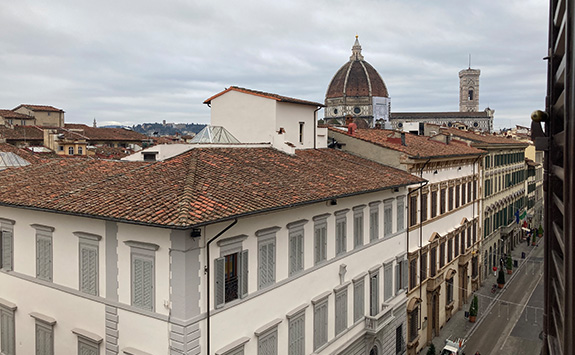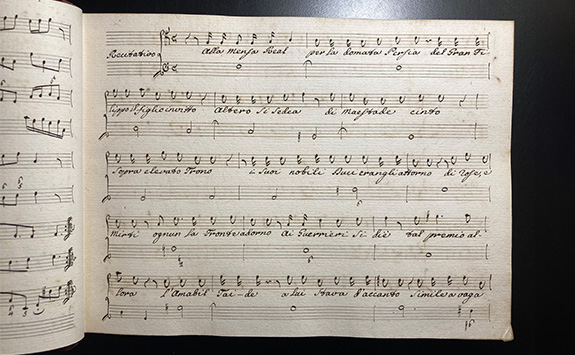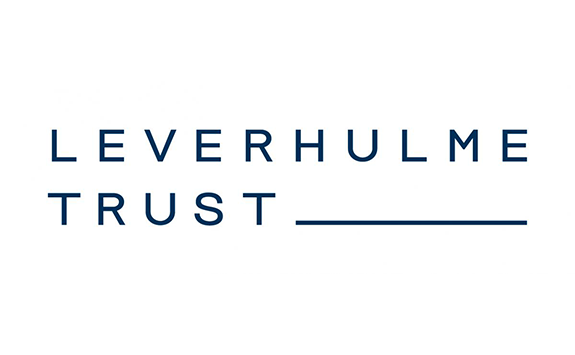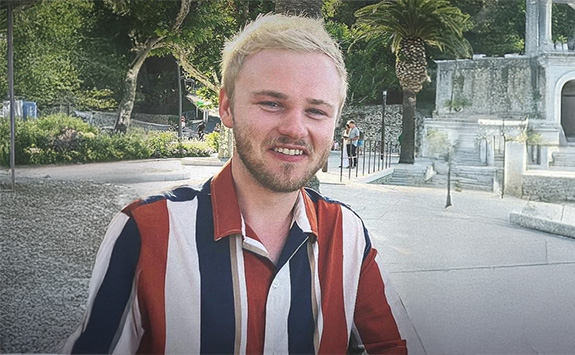Dr Joseph Lockwood, Leverhulme Early Career Research Fellow
Research updates, insights and future plans
What will your research seek to do?
Important research already exists on the reception of the music of G F Handel after the composer's death in Britain. This research shows how the classical music canon came into being, in large part through performances of Handel's music in the second half of the eighteenth century. My work explores Handel’s reception in the same period beyond Britain, where the composer's music was also popular.
I will explore how ways of performing and thinking about Handel's music developed in locations such as Italy, the Caribbean, Vienna and Calcutta. In exploring how these differed from what happened in Britain, I will investigate Handel's music as an object of cultural transfer. I will explore the reception of music via events, criticism, and other composers' creative responses to Handelian models.
I read Music as an undergraduate and began working on Handel from my MPhil onwards. My doctorate was on Handel reception during the American revolution, and my current research extends and builds on that work, expanding its temporal and geographical focus.
How have you found your first full year?
In the first year of the fellowship, I have been welcomed warmly into the department at Newcastle. I have made progress in all of the project’s lines of enquiry but have focused so far mainly on the European dissemination of Handel’s music in the period the research covers. To that end, I have made very interesting research trips to libraries, archives and galleries in Tuscany (Florence, Conservatorio Luigi Cherubini Library), Edinburgh (National Library of Scotland and Scottish National Portrait Gallery), Kinross-shire (private archive held at Blairadam House near Kelty), and London (British Library).
My objective in these research trips has been to explore the performance and reception traditions of Handel’s music in Italian cities in the later part of the eighteenth century, beginning with performances at and in the orbit of the Grand Ducal Court in Florence of Handel’s oratorios in newly produced Italian translations and musical arrangements. I have examined multiple manuscript scores and printed libretti (word books) of newly made versions of oratorios including Messiah and Alexander’s Feast.

I have spoken about my research in conference paper presentations at the Handel Institute Conference in London (November 2023), the British Society of Eighteenth Century Studies in Oxford, (January 2024), and a sui generis day-long conference held at Newcastle University on opera and music theatre organised around Mary Ann Smart’s Visiting Professorship (May 2024). I have also enjoyed undertaking engagement work, including a study day on ‘English Baroque Journeys’ for the historically informed performance ensemble Arcangelo at the Foundling Museum, London (November 2024), where I and Professor Kirsten Gibson presented our research to Arcangelo’s supporters and members. I released a ‘pilot’ podcast, in conversation with Professor Ellen Harris from MIT, as part of the Early Music @ Newcastle festival.
I will explore how ways of performing and thinking about Handel's music developed in locations such as Italy, the Caribbean, Vienna and Calcutta
What have you got planned for the year ahead?
In the coming year I will continue to pursue all strands of the project, with an increased focus on the Indian contexts for Handelian performance and reception in the late eighteenth century. I will make further research trips to the British Library to work with their East India Company holdings to investigate the political and social contexts of the Handelian performance cultures of early colonial-period Calcutta and Madras, and to explore performance records in eighteenth-century Indian newspapers.
My exploration of the Florentine context via primary and secondary literature also alerted me to further centres of Handel reception in Italy at the same time as the Florentine performances. In particular I was drawn to begin researches on the household of Sir William Hamilton, the British Ambassador in Naples from 1764 to 1800 and pioneering archaeologist and vulcanologist. I have identified Sir William’s household as a key nexus of Handel performance and reception. Therefore, an initial priority is a research visit to Naples in January to continue my work on the Hamilton household as a centre of Handelian performance and reception. I will examine Handelian oratorio scores held in the library of the Conservatorio San Pietro a Majella and visit the temporary exhibition ‘Sir William and Lady Hamilton’ currently on display at the Naples Gallerie d’Italia, which provides an opportunity to view numerous crucial visual representations of Hamilton’s household and its Neapolitan context on temporary loan from global collections.

The Leverhulme Trust
Dr Joseph Lockwood is supported by the Leverhulme Trust as a Leverhulme Early Career Fellow, allowing him to carry out the work outlined above.
Since its foundation in 1925, the Leverhulme Trust has provided grants and scholarships for research and education, funding research projects, fellowships, studentships, bursaries and prizes; it operates across all the academic disciplines, the intention being to support talented individuals as they realise their personal vision in research and professional training. Today, it is one of the largest all-subject providers of research funding in the UK, distributing approximately £100 million a year. For more information about the Trust, please visit www.leverhulme.ac.uk and follow the Trust on Twitter/X @LeverhulmeTrust

